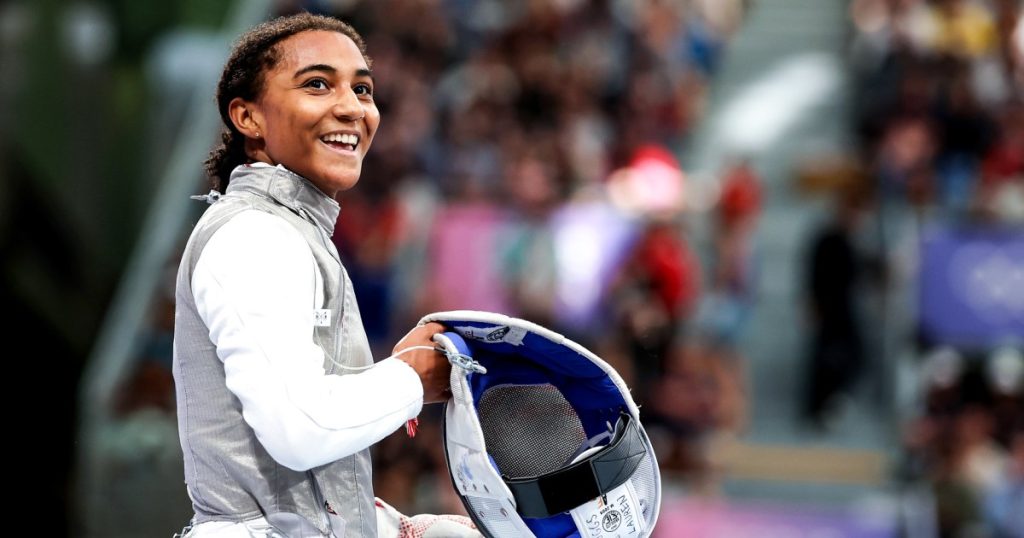American Lauren Scruggs made history at the Paris Olympics by winning the silver medal in women’s foil fencing. She is the first Black American woman and the first Black out lesbian to win an individual fencing medal. Scruggs hopes that her success will inspire other people from underrepresented backgrounds to take up the sport, emphasizing that fencing is for everyone. She started fencing at age 6 and trained under Peter Westbrook, the first Black man from the United States to win an Olympic fencing medal, through his foundation supporting underrepresented youth in the sport.
Scruggs described her Olympic experience as surreal and highlighted the thrill of being in the Olympic Village with other elite athletes. She expressed gratitude for the opportunity to engage with accomplished athletes like Katie Ledecky, Simone Biles, and Coco Gauff, viewing herself as part of this prestigious group. Scruggs enjoys the mental stimulation and unique competitive nature of fencing, noting that it combines elements of combat and strategic gameplay. She has faced challenges and pushback due to her race in the sport, which fueled her determination to succeed and prove her worth on the fencing strip.
As a rising senior at Harvard University studying philosophy and aspiring to work in finance, Scruggs balances her academic pursuits with her passion for fencing. She met her girlfriend during freshman year and shares glimpses of their relationship on social media. Despite facing isolation for her sexual orientation, Scruggs finds strength in her close circle of friends and supporters. She typically takes part in New York City’s LGBTQ Pride march but missed it this year due to a fencing tournament, where she ultimately triumphed. Scruggs’ success at the Olympics not only represents personal achievements but also broader milestones for LGBTQ representation in the sporting world.
In addition to her groundbreaking achievements, Scruggs also contributes to LGBTQ representation in fencing as the second LGBTQ person to medal in a women’s fencing event after French fencer Astrid Guyart. The Paris Olympics have seen an increase in LGBTQ representation, with at least 193 out LGBTQ athletes competing, surpassing the record set in the Tokyo Olympics. Cyd Zeigler highlighted the significance of Scruggs and judoka Amandine Buchard, representing LGBTQ athletes of color, in achieving historic medal wins at the Paris Games. Their success reflects a powerful shift towards greater diversity and inclusion in the realm of competitive sports.
Scruggs’ journey as a trailblazing athlete exemplifies resilience, determination, and a commitment to breaking barriers in a historically homogeneous sport. Her historic medal win serves as an inspiration to aspiring fencers from all backgrounds, demonstrating that excellence knows no bounds. By being true to herself and embracing her identity, Scruggs contributes to a more inclusive and representative athletic landscape. As she continues to make her mark in the world of fencing and beyond, Scruggs embodies the spirit of perseverance and authenticity, paving the way for future generations of diverse athletes to thrive and excel on the global stage.


